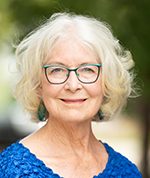
An institution like the University of Colorado Boulder has a diverse range of programs and courses for students to package together into a learning plan. Yet even amidst all of that diversity, from accounting to Yiddish, there is one constant: the Faculty Course Questionnaire, otherwise known as the FCQ.
It’s a form students may recognize as that sheet of paper hastily filled out during the last week of classes. But despite the sometimes trivial appearance of these evaluations, FCQ scores are collected and used by the university for rating instructors — and by students as a resource for choosing faculty.
Every term, FCQ results go to individual instructors, to help them improve their teaching; to department chairs and deans, for assigning courses and helping make promotion, salary and tenure decisions; and to students to use in course selection.
FCQ numbers may not be the most scientific of measures, but they can be useful tools in a class search. While the scores can reflect good teaching, getting an education is not as simple as having an Internet search spit out what may be easy instructors.
“I’d say to anybody looking for the right classes to always check the FCQs online,” says junior Gregory Watson. “My [organic chemistry] professor last semester had an FCQ score of 2.2 [out of 6], and it showed. I should have listened to that, but I was convinced that it didn’t matter, and they really do. It was the worst class I’ve taken.”
It’s not necessarily fair to base judgment of a professor on results from one or two classes because a disgruntled student or teacher’s pet could skew results one way or another, especially in small classes. Scores accumulated over time, however, might be able to alert students to potential stumbling blocks or steer them toward an interesting topic. Watson says while your advisor or fellow student can give you a recommendation or warning about a teacher, “You get a more honest representation if you check the FCQs.”
That’s not every student’s experience, though.
Senior Maxx Myers says filling out the questionnaire is important, but he is happy to stick with his own plan.
“Honestly, almost all of my best classes have been total crap shoots. I’ve just found it really hard to predict,” Myers says. “I’ve been in classes where I really loved the teacher and other people hated it, so I don’t put a lot of stock in FCQs when it comes to choosing courses or teachers. Generally I find things I’m interested in; I don’t really look up the teachers or worry about it too much.”
Perhaps part of the difficulty is due to mixed ideas about what makes a great teacher — and teaching methods are as mixed as the responses students might have to them.
But professors with higher than average FCQ scores seem to share a passion and commitment to motivate young adults to stretch beyond their comfort zone.
Priscilla Craven, senior instructor in the French and Italian Department, declares the expectations from day one to help set the tone for her class.
“My expectations for my course are that you’re going to have a really good time in this class, but you’re also going to work really hard,” she says.
Instructors say they place great importance on the connections made between students and faculty.
“I really believe in the value of relationships,” says Eliana Verveer, public achievement program director for the INVST Community Studies program. “I go out of my way to get to know my students as individuals and to help them uncover their own self-interests.”
Craven says she sometimes learns more from her students than they learn from her.
“I’m teaching my students, but I’m also learning from them,” agrees Sigman Byrd, a writer, poet and instructor in the Program for Writing and Rhetoric. “Writing is my passion, and I speak from my own humbling experiences as a writer. I share that with my students, and I let them know I’m learning just as much as they are about writing. … I get the sense that students have often gone through their education and the curiosity has been squeezed out of them, so I’m trying to squeeze it back into them.”
Philosophy instructor Brian Talbot tries to pick engaging topics relative to students’ lives and says he feels rewarded when students seek him out semesters after taking his course just to talk.
“I try to take the questions that students may be faced with at some point in life,” Talbot says.
“He was one of the best teachers I’ve had,” returning junior Amy Intermont says of Talbot. “He was a nice guy and seemed interested in what he was teaching about. He was obviously very knowledgeable about the subjects.”
When FCQs fail to provide enough information about the professor, you might turn to an academic advisor for some tailored advice.
“Students have a lot of flexibility and choice in which courses they use to fulfill requirements, and it can make an enormous difference in the richness of the education if the student is working with an advisor who knows them,” says Elizabeth Guertin, director of academic advising in the College of Arts & Sciences. “The advisor can really help to make more intentional, informed choices about which courses are going to give them the best experience and the best preparation for where they want to take their particular major or degree program [after college].”
Byrd suggests tossing out the old stereotypes of classroom learning.
“Don’t think of education as something about the professor shoving knowledge down your throat,” he says. “That’s not what education is. It’s your education. Take it by the reins. Get active in the classroom. Get curious. Ask about what you want to know.”
So when filling out your schedule, take a little time to peruse the FCQ website, chat with an advisor for a few minutes, and think about what it is you want from your education.
It might just change your mind about the person you want to be.














